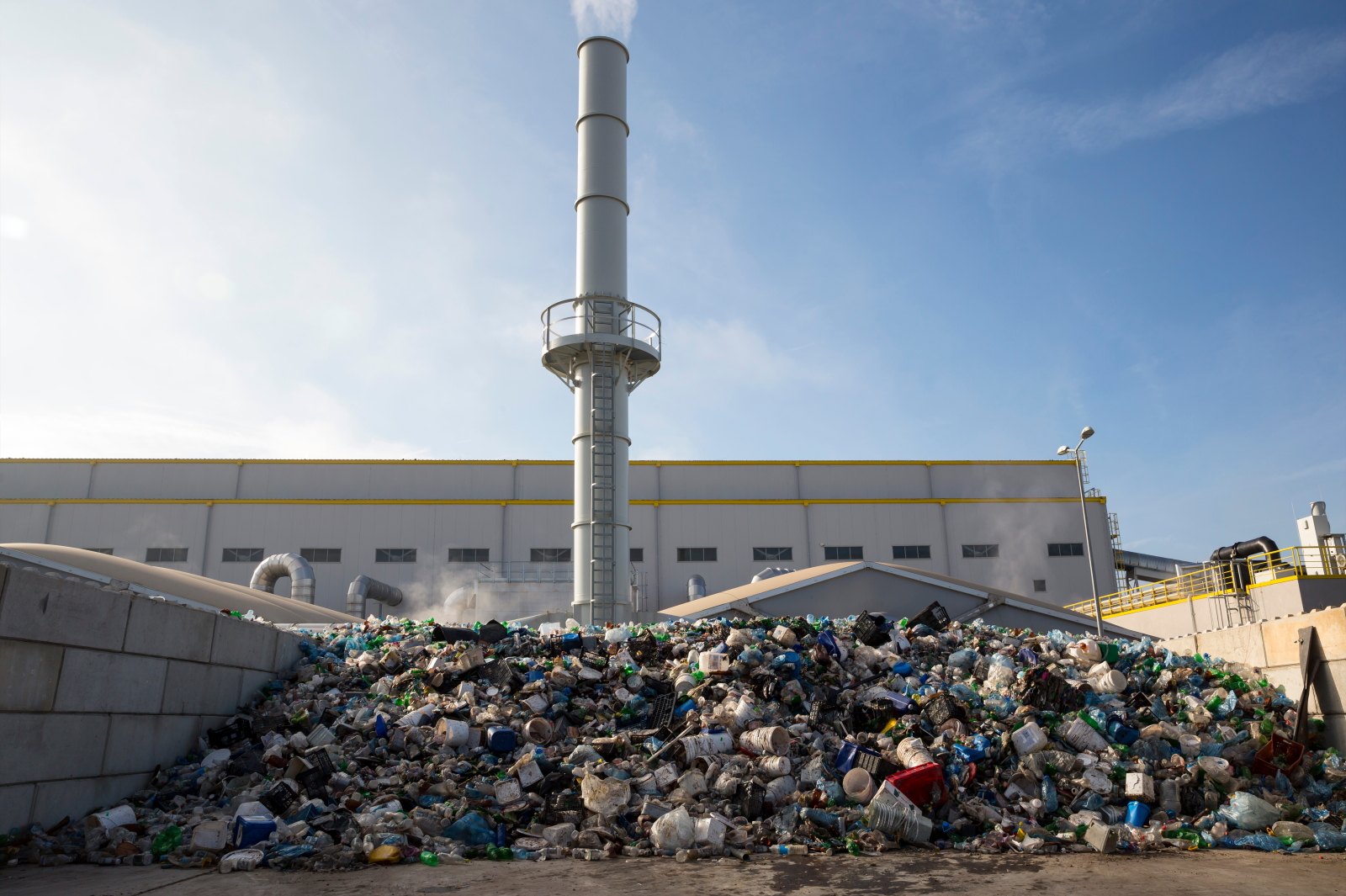
Waste-to-energy isn’t getting off the ground. What can be done?

Why waste-to-energy just isn’t getting off the ground, and what can be done about it: The government continues to tout waste-to-energy (WtE) as a win for private sector companies, following last year’s announcement that it plans to generate 300 MW of electricity from WtE projects by the middle of the decade. Private sector players say real efforts to attract investment are underway, but structural problems remain a major barrier. Without more financial incentives, WtE investment is simply not financially viable, they say.
The government has been working on a national framework to make WtE plants more economically and operationally feasible, says Tarek Barakat, business development manager for WtE at Infinity. Having published new guidelines (pdf) for WtE investment and setting the feed-in tariff (FiT) at EGP 1.4/Kwh in 2019, lawmakers last year passed the Waste Management Act , which will set up a new government agency with regulatory oversight over the sector, and put it in charge of creating a national strategy to improve waste disposal and recycling. Executive regulations for the legislation should be finalized in the coming months.
How will the tariff work? The bill will be shared between the Electricity Ministry and the governorate where each WtE project takes place, Mohamed Nabil Hazzaa, Partner at law firm Sharkawy and Sarhan, tells us. For every EGP 1.4, the Electricity Ministry should pay EGP 1.03 and the governorate EGP 0.37.
There’s private sector interest: Last year, 92 private sector companies bid in a pre-qualification tender to build new WtE projects, with 53 successfully qualifying, according to an Environment Ministry document seen by Enterprise.
And a national project in the works: Eight of the 53 companies — including Orascom Construction and Qalaa Holdings — were shortlisted in early 2021 for phase one of a planned national WtE project, advisor to the Environment Ministry Aly Abu Senna tells us. Phase one aims at funnelling EGP 1 bn from the private sector to establish WtE plants in seven governorates. Incentives include an easier land allocation process for the companies and long-term contracts of at least 5-15 years, he adds.
These will essentially be public-private partnerships, where governorates provide land and waste, and private sector companies design, build and operate facilities, says Metwalli Elnoubi, founder of waste management firm EnviroTaqa.
Subsidized loans for WtE projects are designed to tackle financing challenges: This year, the government announced that WtE projects would receive financing at a subsidized interest rate of 8%, says Empower’s Chairman Hatem El Gamal. This is at least a well-intentioned step designed to address financing challenges, he believes.
But good intentions aside, private sector players say the numbers still don’t add up: The FiT is widely seen as too low to spur investment in WtE, says Hazzaa. “We’ve discussed this issue with several investors and it’s disincentivizing. As far as we’re aware, it hasn’t attracted any investment in the sector.”
One major problem? The tariff is too low: Selling electricity at the FiT rate of EGP 1.4/Kwh simply isn’t profitable for a company working on WtE, says Elnoubi. Treating 500 tons of waste a day could bring profits of EGP 30 mn per year, but operating the plant could cost EGP 40 mn annually, notes one source speaking anonymously.
WtE is not competitive against solar or wind: The WtE FiT is higher than the second phase of the solar FiT, but WtE plants require more capital investment and have higher operational costs compared with solar plants, notes Barakat. There’s also a greater risk of losses from currency devaluation with WtE plants, he adds. For WtE to be competitive against solar, electricity must be sold for the same price, says Elnoubi. “But waste collection, separation and conversion cost much more money. It’s a totally different technology from solar or wind.”
Theoretically, profits could be supplemented by selling recyclables — but they’re in short supply. Recyclables — including plastic, glass and paper — make up an estimated 14% of waste material collected by informal garbage collectors, but only 1% maximum is left in the dumpsters, says El Gamal. Waste management companies wanting to sell these high-value items are generally left high and dry, sources say.
The (still) widely decentralized system could also complicate payment mechanisms: Governorates with WtE projects should pay EGP 0.37/Kwh of the FiT to companies. Under a new system, they’ll take the EGP 0.37/Kwh from cleaning fees collected directly from households, says El Gamal. But he has concerns about this. “Initially, the governorates seemed resistant to paying the EGP 0.37/Kwh. Now they see the government is serious about WtE, they say they’re committed to paying. But we still don’t have a collection system. The problem isn’t with the Electricity Ministry — the problem’s at the governorate level.”
Then, of course, there’s the electricity overcapacity issue, which has led to the stagnation of the wider renewables market, Hazzaa says.
So what can be done? Private sector players are clear: more financial incentives are essential. Virtually everyone we spoke to said the system could only work with financial incentives like gate fees. EnviroTaqa and its Swiss partners see considerable potential in Egypt’s WtE sector, but only if the government pays a gate fee of EGP 150-200/ton minimum plus the EGP 1.4/KWh, says Elnoubi. “That way, we could see an ROI after 8-10 years, which would be impossible with the FiT alone.”
Pilot WtE projects would allow companies to calculate investment costs and potential ROI more concretely, argues Elnoubi. Currently, there are too many unknown variables — like the quantity of recyclable materials in different governorates — for WtE companies to make accurate calculations, he says.
The bottom line? It’s difficult to see WtE projects moving forward without them becoming more profitable for investors. As El Gamal reiterates, the system as it currently stands isn’t financially viable. “The FiT is too low, there are structural issues with decentralized payment collection, and there are no gate fees,” he says. And while the government might be open to introducing financial incentives like tax breaks, along with low-interest financing, it’s been made clear that gate fees are off the table, Barakat says.
Your top climate stories for the week:
- Dabaa nuclear plant launch postponed by two years: The delay comes as a result of disruptions caused by the covid-19 pandemic.
- Bee’ah wants new waste management contracts: The Emirati waste management company wants to provide a waste management system for new cities.
- Egypt launches National Adaptation Plan: The plan — supported by the Green Climate Fund — will be implemented over four years with USD 3 mn in investments and aims to manage and reduce climate change risks.
- How cities must change to get us to net zero emissions: City life must adapt, with an effective urban development plan, in order to achieve the goal of net-zero greenhouse gas emissions by 2050.
Enterprise is a daily publication of Enterprise Ventures LLC, an Egyptian limited liability company (commercial register 83594), and a subsidiary of Inktank Communications. Summaries are intended for guidance only and are provided on an as-is basis; kindly refer to the source article in its original language prior to undertaking any action. Neither Enterprise Ventures nor its staff assume any responsibility or liability for the accuracy of the information contained in this publication, whether in the form of summaries or analysis. © 2022 Enterprise Ventures LLC.
Enterprise is available without charge thanks to the generous support of HSBC Egypt (tax ID: 204-901-715), the leading corporate and retail lender in Egypt; EFG Hermes (tax ID: 200-178-385), the leading financial services corporation in frontier emerging markets; SODIC (tax ID: 212-168-002), a leading Egyptian real estate developer; SomaBay (tax ID: 204-903-300), our Red Sea holiday partner; Infinity (tax ID: 474-939-359), the ultimate way to power cities, industries, and homes directly from nature right here in Egypt; CIRA (tax ID: 200-069-608), the leading providers of K-12 and higher level education in Egypt; Orascom Construction (tax ID: 229-988-806), the leading construction and engineering company building infrastructure in Egypt and abroad; Moharram & Partners (tax ID: 616-112-459), the leading public policy and government affairs partner; Palm Hills Developments (tax ID: 432-737-014), a leading developer of commercial and residential properties; Mashreq (tax ID: 204-898-862), the MENA region’s leading homegrown personal and digital bank; Industrial Development Group (IDG) (tax ID:266-965-253), the leading builder of industrial parks in Egypt; Hassan Allam Properties (tax ID: 553-096-567), one of Egypt’s most prominent and leading builders; and Saleh, Barsoum & Abdel Aziz (tax ID: 220-002-827), the leading audit, tax and accounting firm in Egypt.